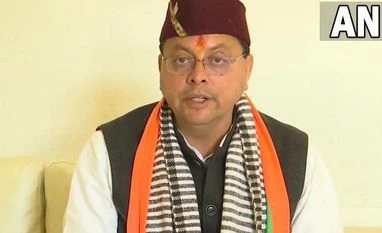Chief Minister Pushkar Singh Dhami on Tuesday introduced a bill in the state legislative assembly to provide 30 per cent horizontal reservation to the women of Uttarakhand state in state-owned services.
Earlier on Friday, the Supreme Court lifted the stay imposed by the Uttarakhand High Court on the government order which provided 30 per cent reservation to women domiciled in the State of Uttarakhand in state services.
A notice was issued to the Respondent by a bench of Justice S. Abdul Nazeer and Justice V. Ramasubramanium, seeking a reply to the Special leave petition filed by the state of Uttarakhand.
The State filed the plea assailing the interim order passed by the Division Bench of the High Court staying the 2006 order of the State of Uttarakhand. The High Court had stayed the GO on the prima facie view that the government order was contrary to the mandate of Article 16(2) of the Constitution of India.
A bench comprising of Chief Justice Vipin Sanghi and Justice Ramesh Chandra Khulbe passed an interim order which was challenged by the state.
The order stated, "The High Court in the garb of interim relief has granted final relief at the interim stage, especially when no prima facie case has been made out by the party asking for the said relief, is not sustainable in law. The impugned order deserves to be set aside on this very ground itself."
The petition also pointed out that the High Court has not considered the fact that the GO of 2006 was not challenged for around 15 years. The petition also highlighted that the GO also provided for Geographical Classification on the basis of place of residence which is permissible under the Constitution of India.
More From This Section
Solicitor General of India Tushar Mehta and Standing Counsel Vanshaja Shukla appeared for the State of Uttarakhand
The Division Bench of the High Court was hearing a writ petition filed by Pavitra Chauhan, Ananya Attri and others from outside the state belonging to the unreserved category which appeared for the state civil examination.
It was their case that despite securing higher marks in the preliminary test of the state civil examination than the cut-off marks (79) for women candidates with state domicile, they were denied the right to appear for the main examination.
)